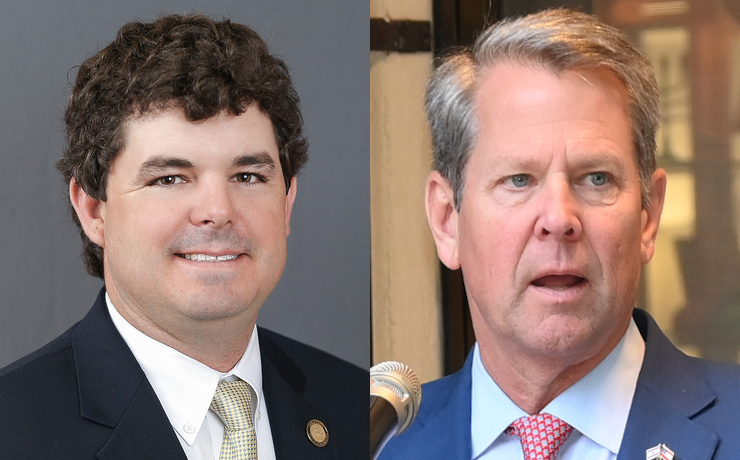A Georgia law limiting the sale of CBD and hemp-derived intoxicating cannabinoid products to those 21 and older is set to go into effect on October 1st.
The law also limits the total THC content of all forms in products containing hemp-derived substances to 0.3 percent.
The bill, passed and signed by Gov. Brian Kemp in May, affects products that are meant to be ingested, absorbed or inhaled.
About THCA
Senate Bill 494 (SB 494) restricts the sale of THCA, a non-addictive compound that has psychoactive effects, to those 21 years of age or older.
The new law comes amid concerns about health and safety risks posed by an unregulated market for non-psychoactive CBD and synthetic hemp-derived products that may have psychoactive effects.
In pushing the legislation, lawmakers cited the sale of these products to minors and consumers confusing hemp with marijuana, and also raised concerns about consumer safety and whether law enforcement could control access to these products.
Is CBD safe?
The U.S. Food and Drug Administration (FDA) has said hemp-derived CBD is not safe enough to be legally sold as a dietary supplement and has asked Congress to create new ways to regulate the substance. In the absence of federal regulation, the market for the product expanded rapidly following the 2018 Farm Bill, which federally legalized industrial hemp. In the absence of regulation of CBD, individual states have worked to regulate the product.
FDA Commissioner Robert Califf appeared before a congressional committee in April and said studies have shown that CBD can be toxic to the liver and harm the male reproductive system, and that exposure to CBD is of particular concern to children and during pregnancy.
The upcoming Farm Bill may force the FDA to enact specific rules to treat CBD as a dietary supplement or food ingredient, which could create a more mainstream market opportunity. Originally intended for the 2023 Farm Bill, the legislation is not expected to pass until the end of this year or early 2025.
Cooking
The compounds that produce the hemp-derived “high” – such as delta-8 THC, delta-10 THC, THC-O-acetate, HHC and THCP, the most well-known of the intoxicating substances in hemp – start out as hemp-derived CBD-based substances that have undergone a synthetic process.
THCA is also found in the hemp plant and has little to no intoxicating effects on its own, but becomes psychoactive delta-9 THC when exposed to heat, light, or certain chemicals.
Growers argue that when sold as flower buds, the THCA meets the Farm Act's 0.3% limit on total delta-9 THC and therefore meets the federally legal definition of hemp.
Loopholes in the Farm Act
A loophole in the 2018 Farm Bill that legalized hemp at the federal level has allowed shady growers in the U.S. to sell illegal hemp compounds as “legal hemp.” The landmark legislation failed to foresee the development of THCA buds and other products that contain psychoactive substances derived from industrial hemp.
“(The Legislature) left this bill pretty vague,” Republican state Sen. Sam Watson, who introduced SB 494, told Capitol Beat News Service. “There's no regulatory environment surrounding this bill. This is a consumer protection bill.”
Watson said cannabis products that promise to get you high and are marketed to children under copycat brands that mimic popular sweets should not be legalized.
“It scares me as a parent,” he said. “If we're going to use this for medical purposes and for sleep issues, why do we need a candy bar for that?”
Draw a line
Georgia law distinguishes between “industrial hemp products” (those not consumed) and “hemp products” (meaning any product obtained or made by processing the hemp plant or any part of the plant in a form available for lawful commercial sale and that has a THC level consistent with the federal definition of hemp, but does not include THC-infused foods).
According to the law's language, “processing” or “treating” does not include “the mere placing of raw or dried ingredients into separate containers or packaging of raw or dried ingredients for resale, or traditional agricultural practices commonly known as drying, hulling, curing, trimming, aging, etc.”
SB 494:
Updates rules regarding licensing, certificates of analysis, inspections, testing, retail operations, and labeling. Prohibits the use of hemp compounds in alcoholic beverages and food, except for gummies and extracts. Prohibits packaging that may be attractive to children.
Source link

